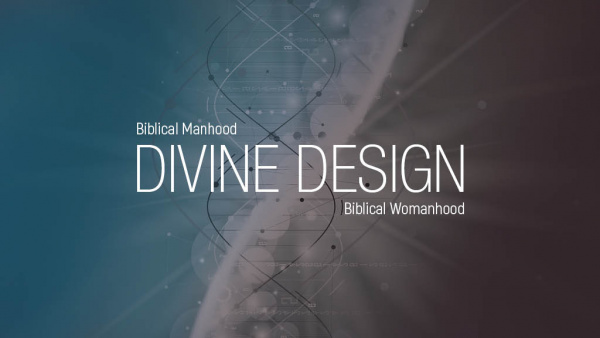Sam Horn: So, Dr. Pettit, we’re back again talking about this incredible series that you’re preaching to our students and our faculty and staff and really to all of us on Biblical manhood and womanhood and it’s generated a lot of conversation.
Steve Pettit: A lot of questions. A lot of questions have come in.
Horn: I mean we have questions from students, and we’ve got questions that we’re hearing from people. And I actually have a couple of them here today, so if you’re up to answering them.
Pettit: Let’s do it. Let’s have a great time.
Horn: All right. So, here’s a big one. So, as we talk about the important topic of Biblical manhood which was the sermon you preached on Monday, third in the series, why did you feel it was so important to talk on that topic?
Pettit: Well, I think—I think to understand the process we’re taking is very sequential. That just means we’re taking it in steps, and so we established the authority of Scripture. We talked about the general principles of God’s creation of man and woman.
Horn: Design—divine design.
Pettit: Divine design. And so we’re taking that step forward. So, we wanted to go back to God’s creation of the first man and what did He lay out foundationally that the first man is to do? So, I spoke about what a man is and then what a man does.
Horn: And I think as you kind of laid that out, one of the important pieces, at least to me, that you put on the table was that in order for
us to really understand divine design in the way that you’ve put it out in that sermon, there needed to be a spiritual enlightenment. Corinthians talks about the fact that there are things that a natural man cannot understand. So, as Christians who have the Word of God and the Spirit of God enabling us, how do we distinguish what’s going on culturally in terms of what people think manhood should look like and what divine design actually points us to?
Pettit: That’s a tremendous question because one of the questions that has come up to me on you know, is the idea of culture in contrast to the Scripture and a part of being a man and a woman is having to live in the world that we live in. God has called Christians to live in the world and not be of the world. We’re to be distinguishably different. But, it’s also made it very clear that there are distinctions between men and women. So, a part of this is understanding our role as a Christian first before God and secondly how do we live that out in our culture without compromising true biblical convictions? So, it takes discernment. It’s not—you can’t do it by rule one, rule two, rule three, and then never have to think after that. So, as a Christian I think the most important thing I said is that we want to be the best—we want to live within our culture with clear distinctions between men and women that are in alignment with biblical truth, that are not compromising or sinning.
Horn: So, coming off that point one of our students asked a particular question about what do we do in a culture that hasn’t just sort of gotten the wrong view of manhood. They’re actually trying to erase the gender differences. How do we—how do we deal with that?
Pettit: Well I think—I think part of the purpose of our whole series is to teach our students to really clearly know what they believe and have biblical convictions. And all Christians in all places have to take stands against the things that are clearly violations of God’s Word. So, I think a part of the process is learning where do we stand?
Horn: Yeah, and that’s what you did in the first two sermons that you laid out where you were so clear about the biblical distinctions that are laid. It takes courage.
Pettit: It takes a lot of courage.
Horn: It takes courage. Here’s a final question maybe we could wrap up with: One of our students—and I really thought this is a great question because all of our students are trying to figure out how to put this to work in their life. And so, one of the things you talked about when you talked about biblical masculinity was the responsibility to lead through serving and loving leadership. And so, one of the questions is, aren’t women supposed to do that? Aren’t women supposed to also live out sacrificial living? So, how does that function as a woman as opposed to what we were talking about in the sermon on Monday?
Pettit: Sure. Well, it really goes back to the process we’re making in this whole series, and that is it’s sequential. So, this coming Monday, I’m gonna speak on being a woman, and it’s very clear that many of the principles are connected to being a woman but there are different roles and different functions. So yes, there are similarities. So, my response is stay tuned and come back next week.
Horn: Yeah, because next week we’re gonna have another conversation, but this time—
Pettit: It might even be better questions next week.
Horn: It could be. It could be. They’re coming from our students, so they’re pretty good questions. Thank you for joining us. We look forward to having you next week.
Download the study guides for the Divine Design chapel series here. If you have a question about the Divine Design chapel series, please submit via the intranet form.







